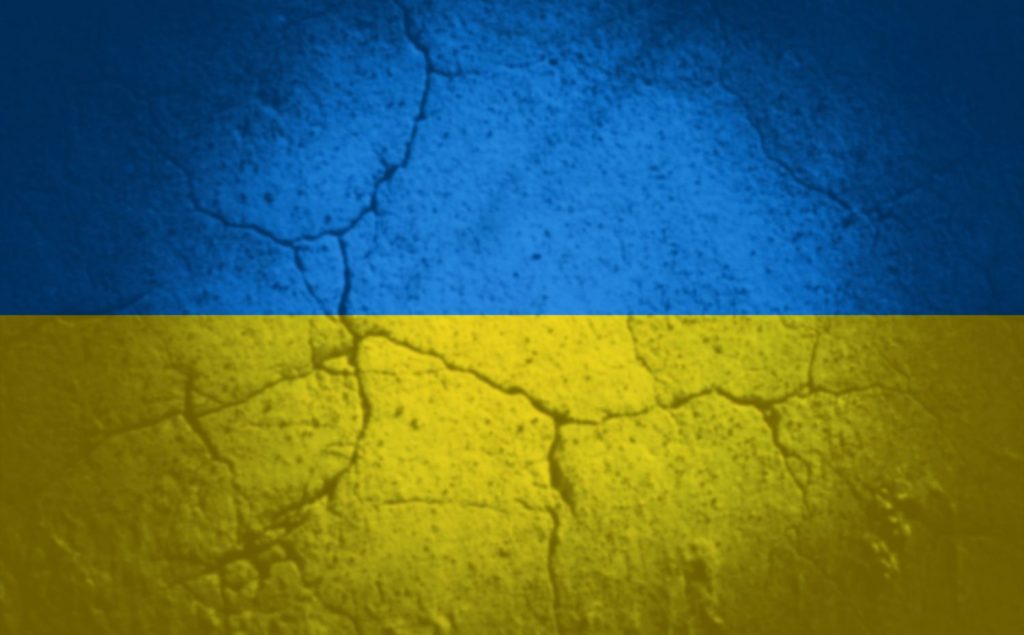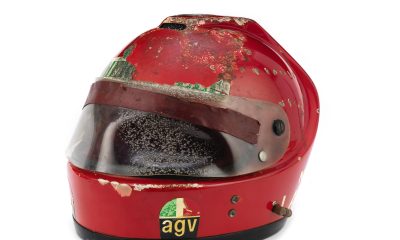Ukraine’s crops could be polluted for AT LEAST 100 years thanks to Russian bombs
The country produces much of the world's grain supply.
Published
2 years ago onBy
Talker News
By Mark Waghorn via SWNS
Farmers in Ukraine could lose crops for at least 100 years due to metal pollution caused by artillery bombardments during Russia's illegal invasion, warns new research.
The country produces much of the world's grain supply - and has been subjected to widespread artillery damage from Russian attacks.
A new study has discovered heavy metal pollution from shelling during the Battle of the Somme... more than a century later.
It has been dubbed 'bombturbation' - the long-term effects of explosive munitions, ranging from grenades to heavy artillery.
The phenomenon was identified in soil collected from craters on the front line in northern France.
An analysis found the dirt contains elevated levels of copper and lead - which destroys plants.
Corresponding author Dr. Naomi Rintoul-Hynes, of Canterbury Christ Church University, Kent, said: "As well as the short-term impacts to agriculture through crop supply chain issues, these fields may be dangerously contaminated by munitions in the long-term - possibly for 100 years or more."
She added: "This could impact food security not only in Ukraine but potentially on a global scale."
The British team focused on a small, wood in the Pas-de-Calais region. It was the scene of significant battles. Many other areas came under even more intense fire.
Dr. Rintoul-Hynes said: "In Europe, the First World War has left a legacy on the environment due to the extensive and intense use of artillery during this period.
"In a process named 'bombturbation', significant physical changes have occurred to the landscape subject to artillery fire, resulting in a divergent soil development in craters.
"Soil heavy metal concentrations did not differ within craters compared to the flat landscape.
"However, lead and copper enrichment was observed above the baseline values for the region."
The study site is within Sheffield Memorial Park, near the village of Puisieux - part of the British front line during 1916. It has not been relandscaped or decontaminated.
Some lead levels were above legal limits deemed safe for soils in the UK and European Union.
Dr. Rintoul-Hynes added that it is likely they have had "ecotoxicological and human health effects."
At the end of 1918, when the cannons finally fell silent, nothing remained in the area, particularly around Bapaume. Not a single tree, house or church.

Every community in the Pas-de-Calais had an involvement. All had seen their youngest inhabitants head off to war - and cried for those who had "died for France."
French historian Professor Xavier Boniface described the Pas-de-Calais as a "microcosm of the world at war."
Dr. Rintoul-Hynes said: "Environmental damage has been a by-product, and sometimes a deliberate strategy, of war since the ancient world.
"The scale of warfare increased to an industrial level in the 20th Century."
The battlefields on the Western Front remained in place for almost the entire duration. It involved soldiers in close contact with each other.
Dr. Rintoul-Hynes said: "This resulted in an unparalleled concentration of weapons, with 1.45 billion shells fired."
An estimated 30 percent did not explode - many yet to be uncovered. In 2015, farmers in northern France were ordered to destroy the produce because of the pollution it left.
A website that chronicles the work of bomb disposal teams says France destroys an average of 467 tonnes of old ordnance, annually.
The researchers compared 22 cores from the centre of eleven craters with 50 from flat, relatively undisturbed ground.
They were taken to six inches down as most metal fragments deposited from
warfare are found up to this depth.
Dr. Rintoul-Hynes said: "Differences in organic matter and salinity in the craters suggest that physical disturbance led to a divergence in soil development at a site that received fewer munitions than previous studies.
"Enrichment of copper and lead is due to warfare rather than natural or other anthropogenic (manmade) causes."
Forty percent of the World Food Programme's wheat supplies come from Ukraine. About 22 million tons are stranded awaiting export.
It produces a whopping six percent of all calories traded in the international food market.
Ukraine produced about 80 million of metric tonnes (MMT) of wheat, corn and barley in 2021 - and is expected to harvest less than half of that this year.
A shortfall of 40 MMT is enough missing calories that a country like the UK could only make it up by having everyone stop eating for three years.
Dr. Rintoul-Hynes added: "Although copper was below the threshold for UK and EU soils, some samples had lead concentrations above these limits.
"Therefore, this must be taken into account when considering a change in land use - that is, to agriculture." The findings are in the European Journal of Soil Science.
Stories and infographics by ‘Talker Research’ are available to download & ready to use. Stories and videos by ‘Talker News’ are managed by SWNS. To license content for editorial or commercial use and to see the full scope of SWNS content, please email [email protected] or submit an inquiry via our contact form.
You may like


Metals can heal themselves just like ‘The Terminator’


Two-faced star has hydrogen on one side and helium on other


World’s oldest big game hunting weapon found


An espresso a day could keep Alzheimer’s at bay


Being bipolar significantly raises risk of premature death: study


Soccer players who regularly use head more likely to develop Alzheimer’s
Other Stories


Scientists launching spaceship that could help us sail to Mars
The NASA mission will test a new way of navigating our solar system.


Disabled student takes first steps in 10 years on graduation stage
"It was a big success."


Helmet Formula 1 legend Niki Lauda wore in infamous crash up for auction
Niki Lauda was lucky to survive his burning car in the 1976 incident at Germany's Nurburgring.


Majority of parents ‘customize’ meals for picky kids
Only 15% of parents say their family rule is that kids finish what’s on their plate.


Scientists estimate as much as 11M tons of plastic sitting on ocean floor
Researchers predicted how much plastic pollution ends up on the ocean floor.
Top Talkers

 Parenting5 days ago
Parenting5 days agoSingle mom details struggles of feeding her 12 kids

 Lifestyle4 days ago
Lifestyle4 days agoWoman regrets her tattoo nightmare: ‘It’s horrendous’

 Broadcast7 days ago
Broadcast7 days agoOver 40% of Americans have no clue what a 401k is

 Broadcast6 days ago
Broadcast6 days agoHow hard is it for Americans to live sustainably?

 Money7 days ago
Money7 days agoOver 40% of Americans have no clue what a 401k is

 Pets1 week ago
Pets1 week agoMost cat owners know very little about their feline friends

 Environment6 days ago
Environment6 days agoHow hard is it for Americans to live sustainably?

 Health1 week ago
Health1 week agoDoctors find new use for Barbie dolls in online appointments
